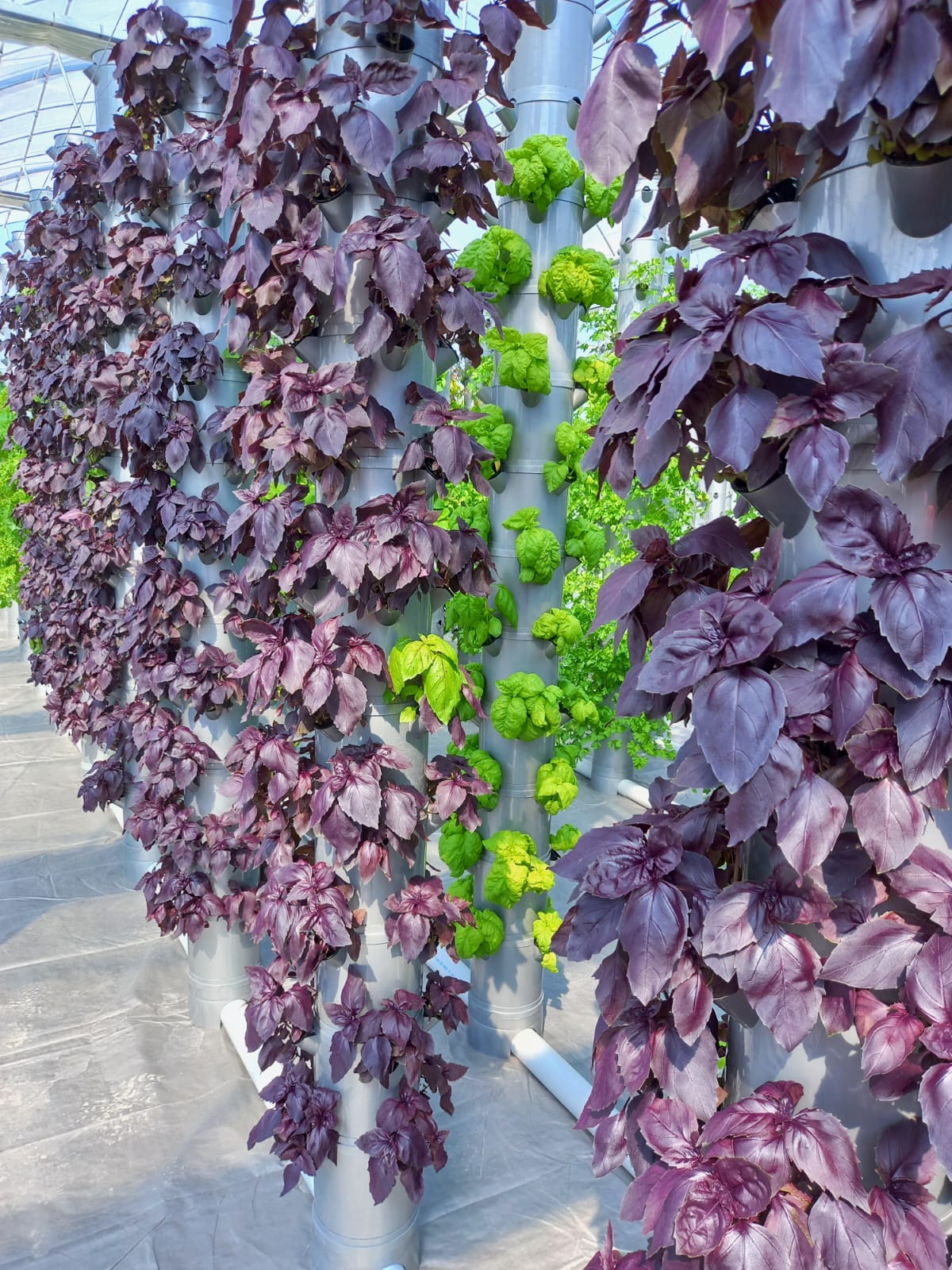Vertical Farming :Efficient and Eco-Friendly Crop Production

Radongrow's Vertical farming is a method of growing crops in vertically stacked layers using artificial lighting, controlled temperature, and nutrient solutions, without soil. It is a type of urban agriculture that allows for the cultivation of crops in a controlled environment, such as in a Green house, building or a shipping container, with the aim of maximizing space efficiency and crop yields.
Radongrow offering Vertical farming With a number of benefits, including:
Low Power Consumption: Need 80 % less power than NFT system.
More plant per Sq.mtr: 300% More plants than NFT system and 200% More Plant than DFt system.
Increased crop yields: Vertical farming allows for the cultivation of crops in a more controlled environment, which can lead to higher yields and faster growth.
Year-round crop production: Vertical farming can be done indoors, which means that crops can be grown year-round, regardless of weather conditions.
Reduced water use: Vertical farming can use up to 70% less water than traditional agriculture methods, as the water is recycled and used more efficiently.
Reduced pesticide use: Vertical farming can be done without the use of pesticides, as pests are less likely to thrive in a controlled environment.
Reduced carbon footprint: Vertical farming can reduce the carbon footprint associated with transporting crops, as they can be grown closer to where they will be consumed.
Improved food safety: Vertical farming can provide a more controlled environment for crop production, which can reduce the risk of contamination and improve food safety.
Overall, Radongrow's vertical farming is a promising solution for increasing crop yields, reducing the environmental impact of agriculture, and improving food safety. While it is still a relatively new and expensive technology, it has the potential to play an important role in the future of food production.
-
Posted in
Aerotower, Grow Tower, Radongrow, Vertical farmin
